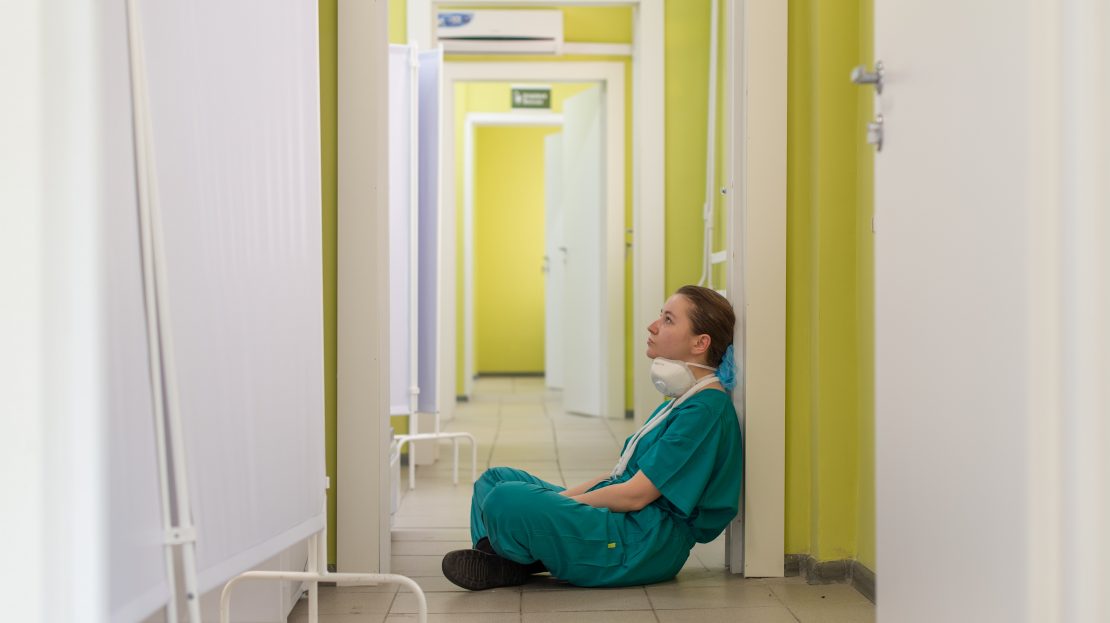Waiting times for ambulances in England rose last month, prompting concerns that the service is “under intense pressure”. New data from NHS England shows that patients calling ambulances for serious conditions, such as a suspected stroke, had to wait an average of 51 minutes, more than double the 18 minute standard set by the NHS. This increased by more than 11 minutes since the previous month. The most urgent calls for life-threatening illnesses or injuries, the average waiting time in June was nine minutes, more than two minutes longer than the standard set by the NHS.
The right to health is enshrined in the Constitution of the World Health Organization (1946) and the Universal Declaration of Human Rights (1948) also mentioned health as part of the right to an adequate standard of living. The International Covenant on Economic, Social and Cultural Rights stipulates that governments should create conditions which would “assure to all medical service and medical attention in the event of sickness”. They should ensure the “provision of equal and timely access to basic preventive, curative, rehabilitative health services”, which could be seen to include timely ambulance services.
Though the NHS has pledged to “provide convenient, easy access to services” within the waiting times set out in its standards, these have been far exceeded.
Martin Flaherty OBE, Managing Director of the Association of Ambulance Chief Executives, said on 12 July that the ambulance service is under “intense pressure”.
He stated: “Severe delays in ambulance crews being able to hand over their patients at many hospital emergency departments are having a very significant impact on the ambulance sector’s ability to respond to patients as quickly as we would like to, because our crews and vehicles are stuck outside those hospitals.”
Ambulances stuck waiting outside A&E
In many cases, ambulance crews are struggling to respond to callouts because they have had to queue for hours outside A&E, to wait for a space to handover their patient to the hospital. This month, BBC news reported that some ambulances were queuing for up to 11 hours outside of A&E in hospitals. Clearly exceeding the set handover time of 15 minutes.
A BBC Newsnight investigation found that between April 2021 and April 2022, there was a 4,000% increase in hours lost by ambulances waiting outside hospitals for more than two hours to admit patients to care.
The Royal College of Emergency Medicine published a report last month which showed that an average of more than 1,000 patients waited 12 hours to get seen by A&E doctors every day in 2021.
Adrian Boyle, Vice President of The Royal College of Emergency Medicine, said that the figures showed the “critical state” of the urgent and emergency care system.
A survey from the Royal College of Nurses revealed that 63 per cent of nurses found that emergency care in hospitals was taking place in inappropriate settings, such as hospital corridors or waiting rooms.
Shortage of social care and hospital beds
Healthcare experts pointed to a ‘crisis in social care’, which has meant patients ready to leave hospital have been unable to be discharged and there is a shortage of beds for new patients arriving at hospital.
Rory O’Conner, a Paramedic and Chair of the College of Paramedics, said that the social care system was acting as an ‘exit block’ on emergency departments.
“People in the community are phoning [ambulances] and we don’t know the harm that’s happening because we are queueing at very busy A&Es,” he said.
Last month, the British Medical Journal reported a loss of 25,000 staffed hospital beds since 2010. A survey from the Royal College of Nurses revealed that 63 per cent of nurses found that emergency care in hospitals was taking place in inappropriate settings, such as hospital corridors or waiting rooms.
O’Connor said that paramedics, sometimes working 14 hour shifts, were struggling to cope with rising demand for services. They fear that the quality of care for patients is “compromised” and that patients are coming to harm.
Ambulance services are struggling to retain paramedics because of stress, high workload and a lack of career opportunities, he said. He added that the current system has “no slack”, made worse by the Covid-19 pandemic and last week’s heatwave, where some regions of the UK saw highs of 40 degrees celsius.
“We want to be out there delivering really good care. Under the current system, we can’t,” O’Connor said.
Edward Argar, the former Minister of State at the Department of Health and Social Care, stepped down earlier this month. During parliamentary questions about ambulance waiting times in June, he stated:
“Performance data for January 2022 shows an improvement in response times in England against all ambulance waiting time categories. NHS England and NHS Improvement are providing an extra £55 million to ambulance trusts to increase staff numbers this winter, providing over 700 additional staff in control rooms and on the frontline to reduce response times.”








